How to apply for a PhD in the UK
Applying for a phd is not quite as daunting as you might think. a postgraduate student recruitment officer from the university of sussex shares his tips for putting together a phd application.


Ben Osborne
There are many different reasons for wanting to pursue a PhD – to move into an academic role at a university, to continue studying a subject you are passionate about or to further your career.
Whatever your motivation, many students are now choosing to pursue a PhD abroad. This guide will help you understand how to apply for a PhD at a UK university and answer any questions you might have around doing PhDs.

Download your Study Abroad Guide for FREE!
How to apply for a phd.
Application rules and methods vary for each university. The number of courses that you can apply for in a year will vary. For example, at the University of Sussex , you can apply for up to three postgraduate courses per year using the postgraduate application system.
If you are applying for more than one degree, you must submit a research proposal/statement specific to each area of study you apply for.
You can also apply to different universities to improve your chances of being accepted to a PhD course of your choosing.
What qualifications do I need?
Each PhD will have specific entry requirements and you will also need to meet a university’s general entry requirements. This may be an upper second-class undergraduate honours degree (2:1) or an equivalent international qualification. For some PhDs you may need a master’s qualification, and you may be asked to attend an interview.
International students may also be required to prove language proficiency. This will vary across institutions so do check what level universities expect before starting your application.
Applicants should always check the specific entry requirements in a university’s online prospectus before making an application.
When should I start applying?
This will depend on when your term start date is. Most research degrees will start in September but some courses offer additional entry points in January or May.
You can apply all year round for research degrees starting in September, January and May, and the deadlines for applying are usually one month before the course start date for UK applicants, and three months before for international applicants.
If you’re applying for funding from an external organisation you’ll need to be aware that they may have different deadlines for the funding application. So give yourself plenty of time to research your funding options, and ensure you know how long the application process takes.
Many universities offer a number of funded PhD opportunities and PhD scholarships for UK and international students, and it’s always worth investigating funding routes such as research councils and other organisations, both in the UK and overseas.
In some cases, it may be possible to study a PhD by distance which means you’ll be able to learn online and have virtual meetings with your supervisor.
If this is something you would be interested in doing you should check before applying whether your university can accommodate this option.
Nine things to know before doing a PhD Starting a PhD during the pandemic Studying for a part-time PhD: the challenges and the benefits Is it possible to do a three-year PhD as an international student?
How should I look for a supervisor?
Usually if you are applying for a funded project, or to a research centre or group, you will normally be asked to provide a statement explaining your suitability for working in that area, and if successful you will be allocated a supervisor.
If you wish to propose your own area of research, you need to decide on a research topic, and you will be expected to write a research proposal. In some cases you may only be required to provide a summary of academic interests and this can be used to match you to a researcher that suits you.
If you are proposing your own research topic, there may be a research database at your university that you can search, or your university will match you with a supervisor during the assessment of your application. It may be possible to request supervision by a particular member of faculty – this will be considered but not all requests can be accommodated.
If you do find a potential supervisor who matches your research area, check their online profile for indications of their doctoral supervision capacity. If they are open to doctoral applications, you can contact them directly to check their availability for supervising you.
It is a good idea to draw up a shortlist of two to three potential supervisors, and take an in-depth look into their research history. You can also find out more about your potential supervisors by looking in the reference sections of academic textbooks and searching for articles in research databases and academic blogs.
When you contact your potential supervisor, it is important to tell them something interesting about yourself, and explain your research interests and how you feel your research proposal matches their expertise.
How do I write a research proposal?
If you are proposing your own research you will need to write a strong proposal that formulates a precise, interesting research question, and establishes the relevance and value of the proposed research question in the context of current academic thinking.
You’ll need to make sure your proposal describes the data or source material your research requires, and outlines a clear and practical methodology that enables you to answer the research question and that states clearly what you hope to discover at the end of your research, and what new areas it might open up.
The precise content and structure of your research proposal will depend on your subject area, and the University of Sussex has some helpful resources on our website to guide you through the process.
How long does the application process take?
Completing an application and writing a research proposal may take some time and should not be left until just before the application deadline.
It’s not easy to give a definite idea of how long it takes to hear if your application has been successful, as it will depend on when the application is made and the nature of the specific PhD, and you would need to meet any conditions contained within the offer before you can start the PhD.
What are the associated costs?
There won’t typically be an application fee for PhDs but there are tuition fees. If a university does charge application fees they will usually be between £50-£100.
The tuition fees for students studying in the UK are set by UK Research and Innovation . Fees for international students are £18,975 for non-lab-based subjects, and £22,975 for lab-based subjects per year.
You’ll also need to factor in living costs, but there are a number of funding routes you can apply for to help with this. As well as PhD scholarships and funded research projects there are research council awards, PhD loans for those eligible, and various organisations to which international students can apply for funding, such as The Gen Foundation and Open Society Foundations.
It’s important to be aware of the costs involved, but it’s also worth remembering that the educational, career and personal benefits of PhD study can be worth it.
You may also like

.css-185owts{overflow:hidden;max-height:54px;text-indent:0px;} How to apply for a PhD in the US
Giulia Evolvi

Women in STEM: undertaking PhD research in cancer
Grace McGregor

PhD diary: Where do I begin?
Charlie Pullen
Register free and enjoy extra benefits
Cookies on our website
We use some essential cookies to make this website work.
We'd like to set additional cookies to understand how you use our site so we can improve it for everyone. Also, we'd like to serve you some cookies set by other services to show you relevant content.
Entry requirements for UK applicants
We are looking for bright, enthusiastic and dedicated students to join our research community. We accept research applications from across the world.

General entry requirements for UK students
At Sussex, our usual entry requirements for UK and international students are:
- at least an upper second-class (2:1) undergraduate honours degree
- a Masters degree if you are applying for research degrees in the arts or social sciences.
We will also consider candidates who can demonstrate appropriate alternative learning such as experience gained in the workplace or professional qualifications.
If you are an international student see the international qualifications we accept .
Specific entry requirements for UK students
You must also meet our specific entry requirements for each research programme. These are listed with each PhD degree .
Check:
- the grade required for your PhD
- if you need to have a Masters qualification.
Interviews
For some research degrees we may ask you to attend an interview.
If you are an international student, you may be interviewed over the phone or via Skype.
You might also be interested in:
- student support
- tips for applying for a PhD
- applying for accommodation
- how to apply for a PhD
- Enquire Now
- About SI-UK
- All Global Offices
- Find Your UK University Course
- Free Service
- Premium Service
- Visa Service
- Oxbridge Service
- Medicine Service
- Art and Design Service
- View all Services
- UCAS and Applying
- UK University Rankings 2025
- University Subject Guide
- Scholarships and Funding
- All UK Study Information
- Undergraduate
- Postgraduate and Masters
- All Study Options
- UK University Profiles
- UK University Study Guide
- Language Centre Home
- Pearson Academic English Test
- University News
- Open Days and Events
- Work with Us

We use cookies to give you the best online experience. Please let us know if you agree to these cookies.
Updates for International Students If you are an international student interested in UK study from January or September 2022 and need advice and support on topics such as travel, quarantine and financing your studies, stay up to date with the latest Studying in the UK and Coronavirus (COVID-19) information.
Connect with one of our team who can help with your 2022 UK university application today. Enquire Now Close
Connect with one of our team who can help with your 2022 UK university application today.
Enquire Now Close
- United States
- United Kingdom
- Saudi Arabia
- Philippines

- Study Options in the UK
- PhD and Research Degrees
PhD Study in the UK
What is a phd.
A PhD is a research degree and is the highest award available at universities in the UK. The study is based on a substantial research project on an area of academic interest, typically up to 100,000 words in length, written as a thesis, which then must be defended in an oral examination in front of a panel of experts. Students are assigned a supervisor, and a PhD duration is typically three years full-time and six years part-time.
Very few research degrees feature taught modules, so students are expected to take more responsibility for their work and schedule.
PhD Eligibility
UK universities are free to admit anyone, with PhD admission generally conditional on the prospective student having completed an undergraduate degree with at least upper second-class honours and a master's degree . English language ability must be proved; a minimum IELTS score of 7.0 is generally required.
PhD Research Proposal
All students who apply for a PhD must submit a research proposal ( example ). The proposal should address the research you wish to undertake, how you will do it, and why it is important. A panel of experts must accept the proposal before your programme can begin.
Other types of Research Degree
Mphil (master of philosophy).
If you wish to study for a PhD, you may first need to begin an MPhil and then transfer to a PhD programme after 12-18 months. An MPhil is also a qualification in its own right and is generally thesis-only, lasting one year full-time and two years part-time. The thesis must present the results of a study and research and be a maximum of 60,000 words.
Students choose to study an MPhil if the proposed research has insufficient scope for a full PhD.
MRes (Master of Research)
An MRes is an advanced postgraduate research degree in the areas of art, humanities, and social sciences. Some Ph.D. Programs require an MRes qualification before beginning a PhD. The programme proper, and the student is required to complete a 40,000-word dissertation.
An MRes is a good way to see if you enjoy conducting research without fully committing to and funding a full PhD.
Professional Doctorate
Professional doctorates are similar to PhDs but are intended to advance professional practice rather than improve academic ability. Joint professional doctorates include law, education, business, engineering, and medicine.
How long does a PhD last?
A PhD in the UK usually takes three to four years if you study full-time. However, it can vary depending on the subject and how quickly you make progress. If you study part-time, it may take longer, typically five to seven years.
How much does a PhD cost?
Funding and researching a PhD can be expensive, with EU students paying up to £6,000 per year, and international students more.
It is rare for a PhD student to not be supported by some form of bursary, grant or scholarship though, and many universities and research councils provide monetary support for part or all of a PhD programme.
PhD admission - how do I apply?
Once you have decided on an area of research and have looked into how you will fund your study, you will need to fill out several documents required when submitting your application. They can include:
- Academic transcripts
- Academic references
- Personal statement
- Research proposal ( example )
Students will also need to identify a supervisor who will oversee their PhD.
Top PhD Programmes in the UK
- university of oxford.
The DPhil in Computer Science at Oxford University offers students the chance to do advanced research in a beautiful setting. You can study topics like linguistics, biology, medicine, and quantum computation alongside computer science, get one-on-one guidance from experienced supervisors, attend lectures, and gain transferable skills.
- Popular PhD course: DPhil in Computer Science
- Entry requirements: A first-class or strong upper second-class undergraduate degree with honours in a four-year undergraduate degree (equivalent to a master's degree) in a relevant subject, or a first-class or strong upper second-class undergraduate degree with honours in a three-year BSc/BA degree and a master's degree with merit or distinction in a relevant subject.
- International fee: £29,700
- University of Cambridge
The PhD in Computer Science at Cambridge University is research-focused. Students work on their research projects under the guidance of a supervisor for three to four years. When admitted, students undergo a probationary period and are registered for the Certificate of Postgraduate Study (CPGS).
- Popular PhD courses: PhD in Computer Science
- Entry requirements: A UK First class Honours Degree or international equivalent. Additionally, having a master's-level degree or equivalent postgraduate work is highly desirable.
- International fee: £35,673
- Imperial College London
The Imperial College Business School offers a Master's in Research (MRes) that introduces students to theory and research methods in Finance, Economics, and Management, providing a solid foundation for future doctoral studies. Depending on the chosen research area, the MRes programme can be completed in one or two years.
- Popular PhD course: One year Master’s in Research
- Entry requirements: A high academic standing (such as a distinction or merit), or a first-class or upper second-class honours undergraduate degree.
- International fee: £17,500
- University College London
The Management MRes + MPhil/PhD programme at UCL School of Management offers a prestigious research experience for students seeking scholarly careers in management studies. With a strong reputation for world-leading research, the programme provides rigorous academic training and personalised research mentorship.
- Popular PhD course: Management MRes + MPhil/PhD
- Entry requirements: A first-class Bachelor's degree from a UK university or an equivalent overseas qualification. UCL encourages applicants from various disciplines to apply and requires them to have taken the GMAT or GRE General Test.
- International fee: £29,000
- University of Edinburgh
The University of Edinburgh’s PhD in Informatics focuses on training researchers with comprehensive knowledge in their discipline and a specialised area. During the first year, you will attend relevant lectures, submit a thesis proposal, and receive annual progress reviews. Successful completion of a thesis and oral examination leads to the award of a doctorate. Regular talks and seminars provide additional learning opportunities.
- Popular PhD course: Doctor of Philosophy (PhD) in Informatics
- Entry requirements: A degree in an Informatics-related field like Artificial Intelligence, Cognitive Science, or Computer Science. Proficiency in computer programming is required.
Study a PhD in the UK
If you are interested in studying for a research degree in the UK, arrange a free consultation today. The PhD Service can also help you apply with expert application advice, interview practice and research proposal editing.
PhD Admission FAQ
Is a phd fully funded in the uk for international students.
PhD funding for international students in the UK varies. Some universities offer full funding, while others require students to find funding. Scholarships, grants, and assistantships are available, but not all PhD programmes are fully funded.
What are the requirements for studying for a PhD in the UK?
To study for a PhD in the UK, you generally need a master's degree or an equivalent qualification in a related field. You'll also need to write a detailed research proposal explaining your research objectives and academic references that assess your research abilities. Additionally, you must secure funding to cover your tuition fees and living expenses, which can come from scholarships, grants, personal funds, or sponsorship. Requirements may vary, so it's best to check with individual universities.
Can international students apply for a PhD in the UK?
international students can apply for a PhD in the UK. UK universities accept applications from students worldwide.
How much does a PhD cost for international students in the UK?
PhD tuition fees for international students in the UK depend on factors such as the university, field of study, and location. On average, fees range from £15,000 to £35,000 per year. However, it's important to note that actual fees can vary significantly .
UK Study Options
- Foundation Courses
- Foundation Courses London
- Pre-Masters
- Postgraduate and Master's
- Two-year Degree
- English Courses
- Study Abroad
- Distance Learning
- Boarding Schools

Studying in the UK
Study at ucl.

Studying at the UCL Bartlett School of Architecture
- Five Reasons to Study at University College London
- Four Reasons to Study at the UCL School of Pharmacy
- UCL Graduate Programme Guide for International Students
Business, Management, and MBA

Top 10 MBA Programmes in the UK
- Top 10 Universities in the UK to Study Business and Management
- Choosing the Right Business School and Course in the UK
- Top 10 Business Schools in London for 2025 Entry
UK University Rankings

Top 10 UK Universities for Sustainability
- Top 10 UK Universities for Graduate Prospects 2025
- Best UK Universities for Student Experience
- The Top 10 Universities in London 2025
My consultant was very helpful and motivating. She helped me every step of the way, even when the deadline was so close. I feel I could not have done it without her. I'd highly recommend this service to any and all of my many friends interested. Brishti Basu Biosciences at Coventry University
Leading Universities and SI-UK Partners

- © 2024 SI-UK
- All rights reserved
- Privacy Policy -->

Book your Free Consultation
A member of the SI-UK team will be in touch within 24 hours to arrange your initial consultation with one of our UK education experts.
Global main menu
- Queen Mary University of London
- Postgraduate
- Research degrees
Applying for a PhD
Considering applying for a PhD? Explore our advice below and see what sort of things you need to consider – from finding a supervisor to drafting a research proposal – we've got tips and advice to help you begin your PhD journey at Queen Mary.
One of the most important things to do before filling out an application is to find a good match with a supervisor or existing research group. Most Schools advise that you make contact with a supervisor via email before submitting an application. If you're applying for entry via a MRes programme, then this is not necessary.
To learn more about our PhD programmes, check entry requirements and find the applications forms, select your subject from the drop-down menu below.
If you applying to come as a visiting/associate student for part of your PhD, you need to apply via this page https://www.qmul.ac.uk/postgraduate/associate/
Step 1: Identify a research match
Before submitting an application, we encourage you to contact a potential supervisor via email. When you write to them, they will be looking for certain things to ensure you are a suitable PhD candidate and will consider the following:
- Is the proposed project suitable for PhD study?
- Do you have the academic strength to complete your project?
- Can the project be completed within the required time?
- Do they have the relevant knowledge to supervise your project?
- Can the School/Institute support your project and do they have the facilities and resources?
If you cannot find the research area you are looking for, or have any queries about the application process, you can either contact the School or our fill out an enquiry form and our PhD team will be in touch.
Step 2: Review our entry requirements and funding
Entry requirements
Typically, the minimum entry requirement is an UK upper second class honours degree (2:1). Some Schools/Institutes require a first class honours degree and/or a masters degree. If your qualifications are not from a UK university, Queen Mary also considers recognised equivalent qualifications from accredited overseas institutions and equivalent professional qualifications. Relevant work experience may also be taken into account.
If English is not your first language, please check your programme's English language requirements . You do not need to meet this at the point of application. You may provide evidence of your English level at a later date.
Funding You should ensure that you have a realistic plan to secure sufficient funding to complete the research and writing-up process within the normal time period. This is usually three to four years for full-time programmes, and six to seven years for part-time programmes. Many of our PhD students are funded by Queen Mary or one of the Doctoral Training Programmes. Studentships cover your tuition fees and normally include an allowance towards living costs. Studentships are advertised on our School/Institute websites, our Postgraduate Research Studentships page , Jobs.ac.uk and Findaphd.com . Read more about PhD funding at Queen Mary.
Step 3: Prepare a research proposal
If you are applying for an advertised project, you may not need to submit a proposal. But if you are proposing your own project idea you will and this is a key part of your application.
Before submitting your application, it is likely that you will need to revise your proposal several times. Whilst your potential supervisor will help you do this, it is important that you present them with as clear a proposal as you can when you first make contact with them.
Tips for writing a strong research proposal include:
- Formulate a precise, interesting research question; this may take the form of a hypothesis to be tested, or a more open-ended inquiry.
- Establish the relevance and value of the proposed research question in the context of current academic thinking. Is there a knowledge gap?
- Outline a clear and practical methodology which enables you to answer the research question, and to describe and evaluate any data or source material you will draw upon.
- Suggest what you hope to discover at the end of your research and what new areas it might open up.
- Demonstrate that your research will not take longer than three years.
Check the specific requirements (e.g. word count) on the School/Institute webpages.
Step 4: Gather your documents and apply online
To get to the online application form, select your research area from the list above. You will then be able to select an online application button specifically for your start date (e.g. Semester 1, September 2021).
Each application should include the following:
- A completed application form
- Transcripts for all higher education studies - this includes any undergraduate and postgraduate study
- Proof of English language ability for overseas applicants from non-English speaking countries
- Curriculum Vitae (CV)
- Your research proposal
- A one-side A4 statement of purpose. This should set out your previous academic or other experience relevant to the proposed research; why you wish to undertake this research at QMUL; your previous research or professional training and what further training you think you will need to complete a PhD; and what ethical issues you will need to consider in undertaking this research.
- Two references. At least one reference must be from an academic referee who is in a position to comment on the standard of your academic work and suitability for postgraduate level study. Where appropriate, a second referee can provide comment on your professional experience.
Note: If you don't yet have your final degree certificates or proof of English then you can apply and upload these missing documents at a later date. Include all the information you can at the time of applying.
We will contact your referee(s) by email to supply a reference. However, a scanned colour copy of a reference provided on paper can also be provided either at the point of application or in response to the reference request email your referee will receive.
If your referee emails your reference to us we can only accept it if it is sent from a university or company email address (ie not Hotmail, Gmail etc). Paper reference forms should be endorsed by an appropriate official stamp or on institution/company letterhead. Alternatively, if your referee has agreed to provide an open reference letter, you can scan this and upload it in the upload document section of the online form.
What about international applicants? International applicants are welcome to contact one of our authorised local representatives if they feel they need assistance in submitting their PhD application. Our representatives can help you apply, ensuring you submit all of the requisite documents whilst also supporting you through the immigration process. To find your local Queen Mary representative, see our country/region specific information .
Step 5: What happens next?
Once processed, the School/Institute may get in touch with you directly to discuss your application and arrange an interview. Those not short-listed for interview will receive a rejection message via the applicant portal.
The entire process from the submission of your application, to an invitation to discuss further, interview or decision, typically takes between six to eight weeks. But if you applying for advertised funding, this Schools will not look at your applications until the deadline has passed. If you need a decision by a given deadline in order to apply for external funding, please make this clear in your application.

Admissions Policy
You can download and read our Admissions Policies on the Policyzone.
Can I apply for more than one programme of study? You may apply for a maximum of two taught programmes or one taught and one research programme at QMUL. If you are applying online, you will need to submit two applications. Please note: although you may apply for two programmes, under QMUL regulations you can only study for one qualification at a time. If you receive offers for both programmes, you will be required to accept one and decline the other.
Is there a deadline for receipt of applications? There is no fixed closing date for applications but you should remember that decisions on applications will be made as quickly as possible. Students seeking financial support from Research Councils or other award giving bodies are asked to apply as early as possible and make it clear in their application the Research Council deadline. Additionally students applying for QMUL Studentships are reminded that their applications must be in line with Research Degrees Office deadlines. Please see our Postgraduate Research Studentship page and Postgraduate Research Deadlines page .
Is there an application fee? No, QMUL does not charge an application fee.
Is my qualification recognised? Our International Office has a list of countries/regions for which we have published admissions information online. Please see our international students section. Alternatively we use UKNARIC to check the equivalency of international and European qualifications: www.naric.org.uk What happens after I submit my form? All complete applications will be considered by Admissions Tutors. Providing you have included all the required documentation, we aim to inform you of a decision on your application within six to eight weeks of receipt. Please note this can vary during peak application times (January – April).
Where can I find out more about English language requirements? Read more about our English language requirements page .
Is there any help for applicants with disabilities? Queen Mary University of London has a dedicated Disability and Dyslexia Service which offers advice, support and guidance for disabled students, including those with mental health difficulties and specific learning difficulties (eg dyslexia), from the point of application through to graduation. This advice covers issues such as agreeing to the provision of reasonable adjustments, as well as accessing external sources of funding and support, such as the Disabled Student’s Allowance. Our Disability and Dyslexia Service is represented at the various open days held across the year, but if you would like to discuss any aspects of support, you can contact the service at any time to request an appointment, either in person or over the phone. Fill out our online form or contact us on the details below: Web: www.dds.qmul.ac.uk Tel: +44(0) 207 882 2756 Email: [email protected]
Graduate admissions
We offer a unique experience to our graduate students, including the opportunity to work with leading academics and with world-class libraries, laboratories, museums and collections. The Graduate Admissions pages of the University of Oxford website are designed for those applying for postgraduate study at the University of Oxford during the 2024-25 academic year

Applications are now open for entry in 2025-26
Explore the full range of graduate courses that are accepting applications

The world’s number one university
Oxford ranks top in the 2025 Times Higher Education World University Rankings

Get updates direct to your inbox
Register for monthly email updates from Graduate Admissions
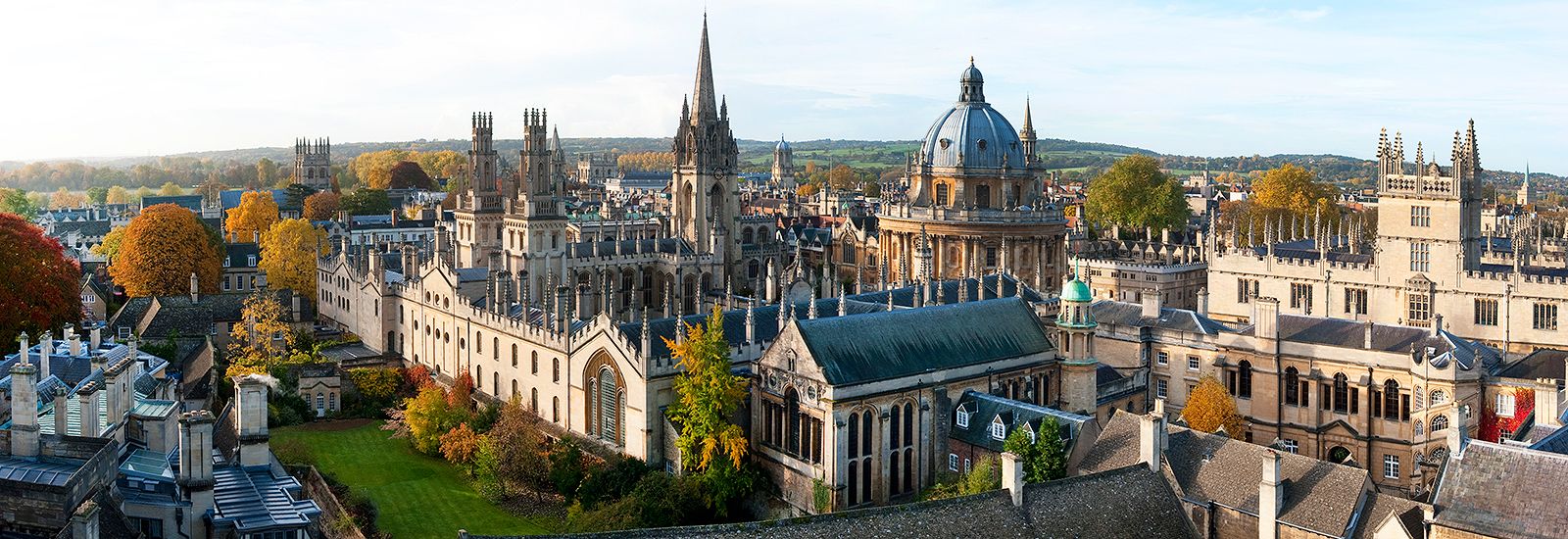
Support with applying for graduate study
Access initiatives including application fee waivers for students from low-income backgrounds

Application tips from our students and staff
Read advice from graduate students and staff before you apply

Read our guide to graduate courses that are accepting applications.
- Complete courses A-Z listing
- Departments offering graduate courses
- Part-time and online study

Fees and funding
Information on fees, living costs, scholarships and loans and advice on finding other funding.
- Oxford funding
- External funding
- Fees, funding and scholarship search

Applying to Oxford
Our detailed information will guide you through the graduate admissions process.
- Application Guide
- Application fee waivers
- Information for referees
Course finder
Applying for graduate study at oxford (5:00-6:00pm uk time), postgrad live london, healthcare data science (epsrc cdt) open day.

This is Graduate Oxford
The University has an international reputation for world-leading research, teaching and resources, and combine this with a beautiful and historic city, it is alive with activity, attracting students from all over the world.

International applicants
- Advice for international applicants
- International qualifications
- English language requirements
Connect on Social Media

Can't find what you're looking for?
If you have a query about graduate admissions at Oxford, we're here to help:
Ask a question
Privacy Policy
Postgraduate Applicant Privacy Policy
Website navigation
Postgraduate doctoral, postgraduate doctoral admissions process.
Become a doctoral student at Imperial
Find out more about applying for doctoral study as a Home student.
Applying as an international student may involve a few extra steps. Find out all you need below.
Personalise my experience
Find a doctoral course.
Explore our postgraduate doctoral courses, which give you the chance to create original knowledge in your chosen field through an intensive programme of in-depth research. Options include PhDs, integrated PhDs and professional Doctorates for working professionals.

Find a course

How to apply
Follow the steps below to apply for a postgraduate doctoral course. You may only be considered for a maximum of two courses in any one admission cycle – each will require a separate application.
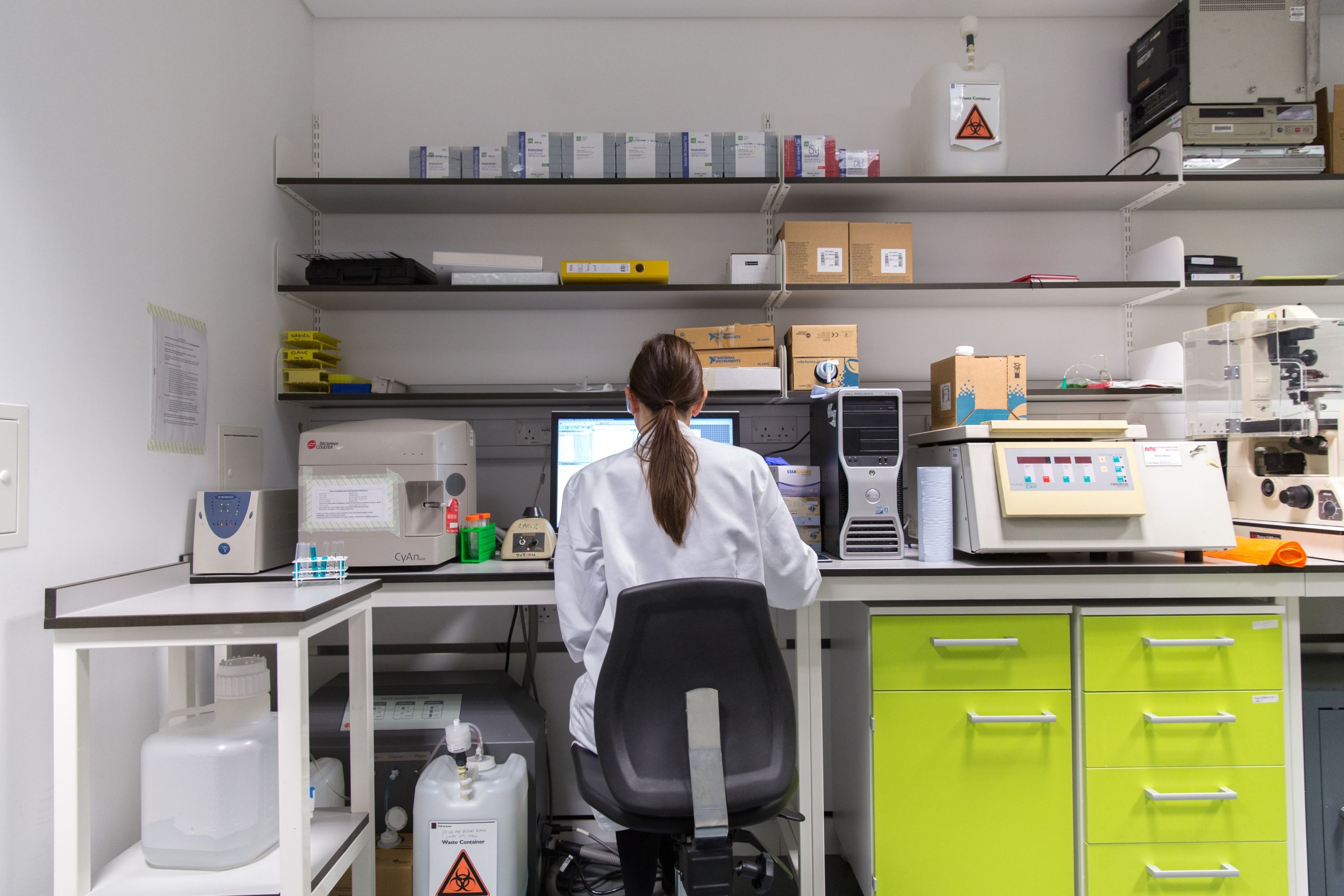
Create a MyImperial account
Get started by registering a MyImperial account.
Ensure you meet the entry requirements
Explore the minimum entry requirements required for accepted qualifications - your course of interest may have higher requirements.
Take note of any deadlines
While many supervisors accept new students throughout the year, funded PhD projects may have defined deadlines for entry.
Upload all supporting documents
We won't start processing your application until you have uploaded all supporting documents.
Check your application status
Sign in to your MyImperial account at any time to check your application's progress.
- Submit your offer conditions
Before you can register for your course, pay tuition fees (if you’re self-funding), or receive a CAS to support your visa application (if you need one), you will need to show you have met all your offer conditions.
Student visa – CAS
If you need a visa to study in the UK, you'll need to provide a Confirmation of Acceptance for Studies (CAS) with your visa application. We'll issue this automatically after you have met your offer conditions.

If you need a visa to study in the UK, you'll need to provide a Confirmation of acceptance for studies (CAS) with your visa application. We'll issue this automatically after you have met your offer conditions.

Doctoral loan
A Postgraduate Doctoral Loan for Home students can help with course fees and living costs while you study.
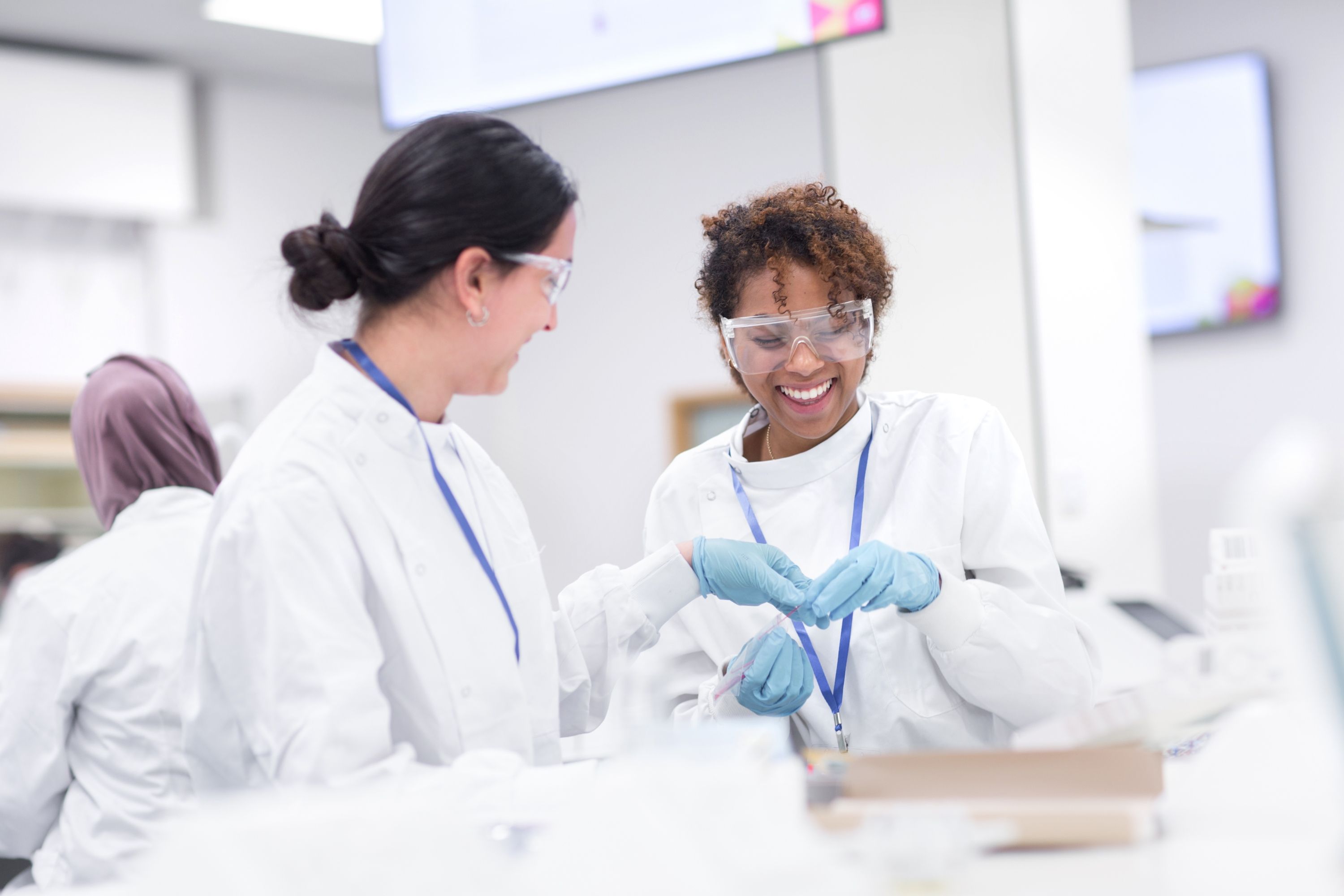
- Application process

Get more information about the application process.
- English language requirements
- Advice on choosing a course
After you apply
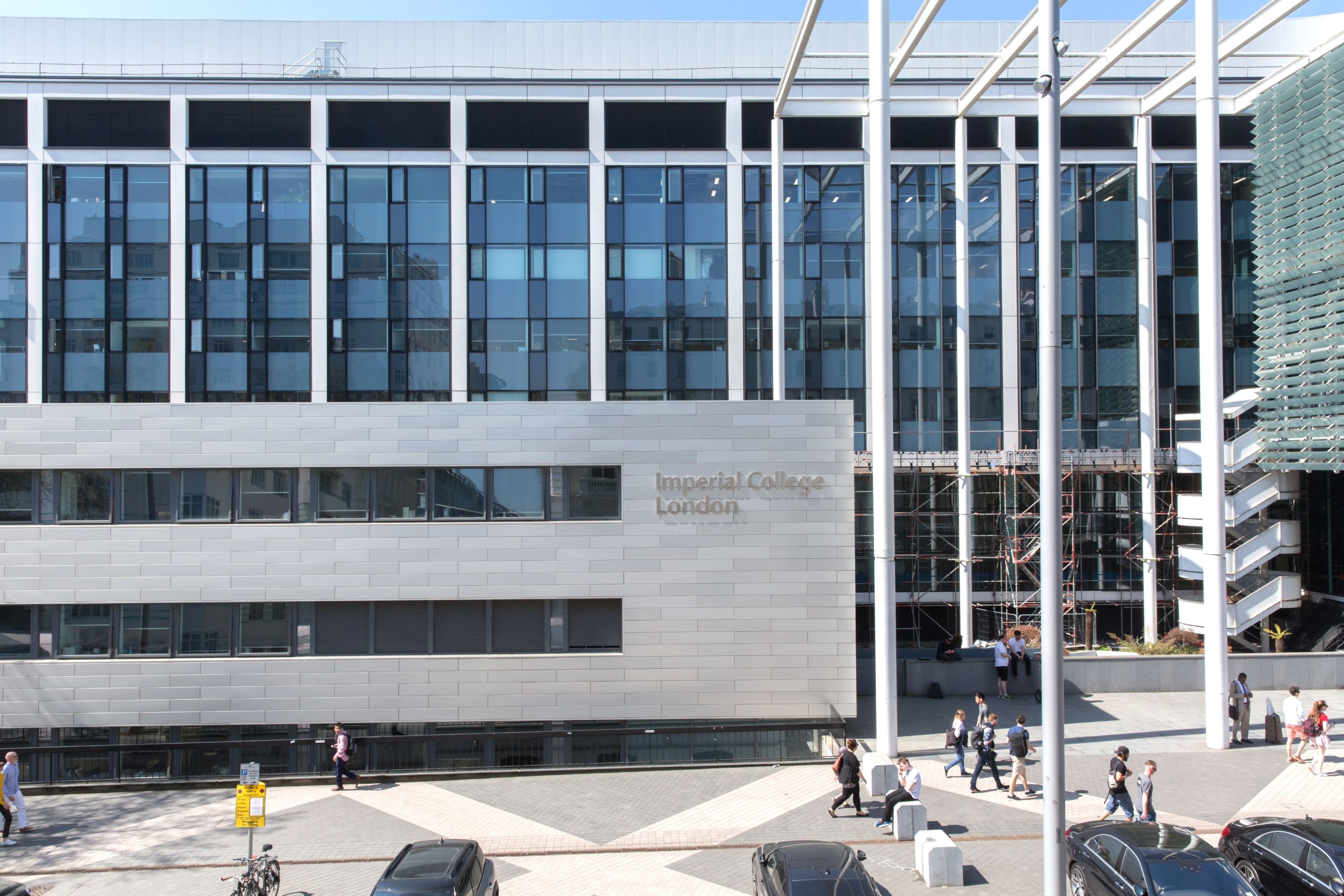
Find out what happens after you apply
- Track your application
Offer holders

You're on your way to joining our community. Explore some of the next steps.
- Apply for a visa (if you need one)
- Apply for an ATAS certificate (if required)
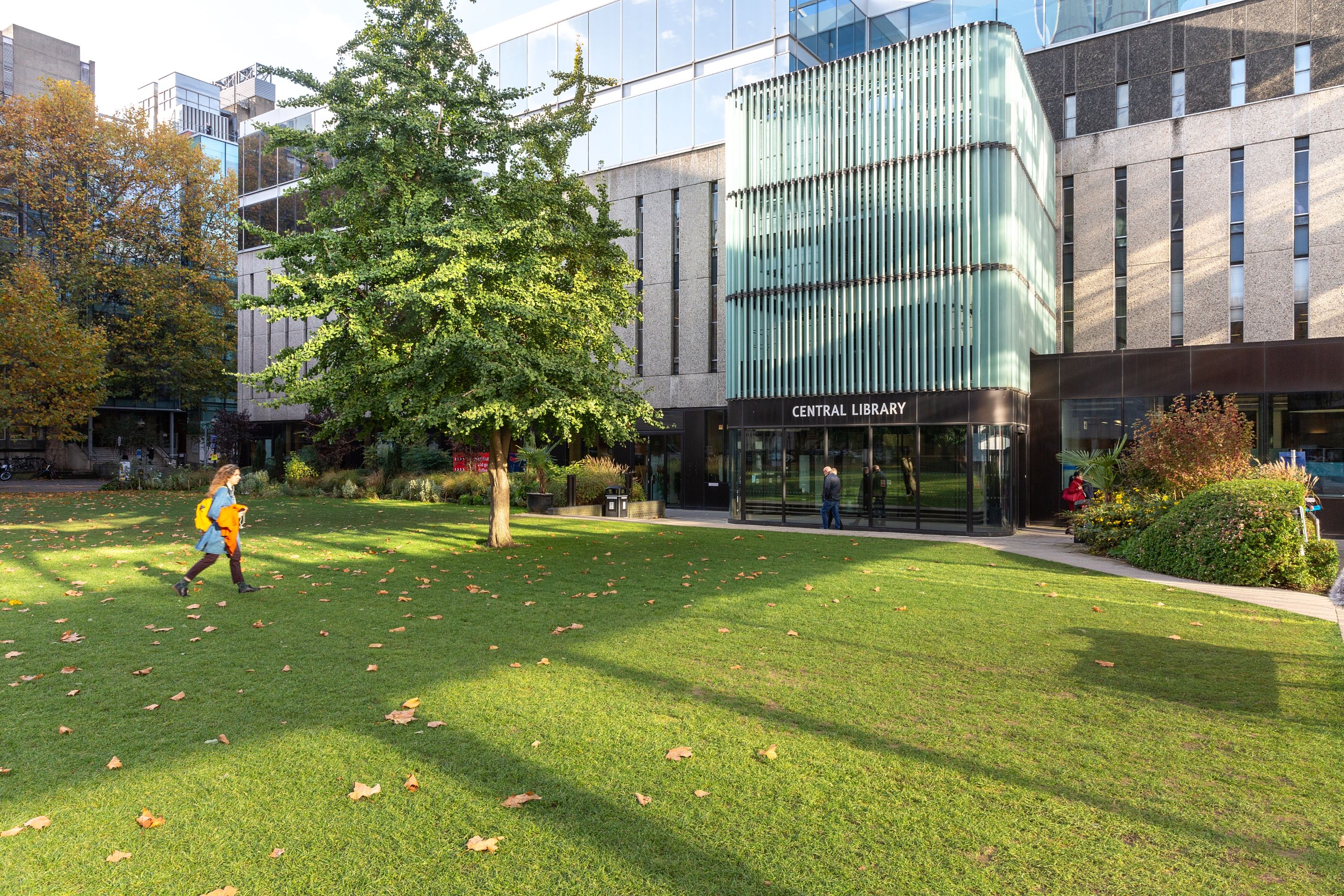
You're on your way to joining our community. Find out what comes next.
- Find a home in London
- Chat to our students

Study at Cambridge
About the university, research at cambridge.
- Undergraduate courses
- Events and open days
- Fees and finance
- Postgraduate courses
How to apply
- Postgraduate events
- Fees and funding
- International students
- Continuing education
- Executive and professional education
- Courses in education
- How the University and Colleges work
- Term dates and calendars
- Visiting the University
- Annual reports
- Equality and diversity
- A global university
- Public engagement
- Give to Cambridge
- For Cambridge students
- For our researchers
- Business and enterprise
- Colleges & departments
- Email & phone search
- Museums & collections
Applying for postgraduate courses at Cambridge
- Postgraduate Study
- Why Cambridge overview
- Chat with our students
- Cambridge explained overview
- The supervision system
- Student life overview
- In and around Cambridge
- Leisure activities
- Student union
- Music awards
- Student support overview
- Mental health and wellbeing
- Disabled students
- Language tuition
- Skills training
- Support for refugees
- Courses overview
- Course Directory
- Department directory
- Qualification types
- Funded studentships
- Part-time study
- Research degrees
- Visiting students
- Finance overview
- Fees overview
- What is my fee status?
- Part-time fees
- Application fee
- Living costs
- Funding overview
- Applying for University funding
- Doctoral training programmes
- External funding and loans
- Colleges overview
- College listing overview
- Accommodation
- Applying overview
- Application deadlines
- Entry requirements
- International qualifications
- English language requirements
- Find a supervisor
- Widening access and participation
- Supporting documents overview
- Writing a research proposal
- Preparing a personal statement
- Application fee overview
- Application fee waiver
- International applications
- Disabled applicants
- AI and postgraduate applications
- Admissions fraud
- How we assess your application
- Outcome of your application overview
- Appeals and complaints
- Your offer overview
- Visas and immigration
- Declaring criminal convictions
- Defer your application
- Prepare to arrive
- Track your application
- International overview
- International events
- International student views overview
- Akhila’s story
- Alex’s story
- Huijie’s story
- Kelsey’s story
- Nilesh’s story
- Get in touch!
- Events overview
- Upcoming events
- Postgraduate Open Days overview
- Discover Cambridge webinars
- Virtual tour
- Research Internships
- How we use participant data
- Postgraduate Newsletter
Before you apply
After you apply.
- Why Cambridge
- International
To apply to the University of Cambridge, you must submit your application online through the Applicant Portal.
If you're applying for a course at the Judge Business School or the Institute of Continuing Education (ICE) , refer to the course page for details on how to apply.
Follow these steps to ensure you know what to expect and have everything in place before you start your application.
- Choose a course
- Check you meet the entry requirements
- Check the application deadline
- Find a supervisor (if you need one)
- Calculate your fees and costs
- Research funding opportunities
- Explore the Colleges
- Choose your referees
- Prepare your supporting documents
Once you've completed the steps above, you can start your application.
- Go to your course page and select 'Apply Now'. This will open the Applicant Portal.
- Register or sign in to the Applicant Portal.
- Complete and submit your application by the relevant application deadline .
Your application is considered complete when:
- You have uploaded your supporting documents
- You have paid the application fee or been given a fee waiver
- Your referees have submitted their references via the Referee Portal
If you're an international applicant , there are some other steps to consider.
If you want to be considered for funding , you can tell us in your portal application.
You need to submit a separate application (with separate supporting documents) for each course you wish to apply for.
Once you've submitted your application you can:
- Track your application and update your details as needed.
- Find out how we assess your application and when you’ll hear back.
- Review what to do after you get the outcome of your application .
If you receive an offer
- Check how to meet the conditions of your offer
- Check visa requirements (if you need one)
- Find out how to change your start date if necessary
Applicant Portal
Log in to create, manage and track your application.
Related Links
- Guidance for international applicants
- Advice and support for disabled applicants
- Applying for part-time courses
- Find out how we are widening access
Postgraduate Admissions Office
- Admissions statistics
- Start an application
- Applicant Self-Service
At a glance
- Bringing a family
- Current Postgraduates
- Cambridge Students' Union (SU)
University Policy and Guidelines
Privacy Policy
Information compliance
Equality and Diversity
Terms of Study
About this site
About our website
Privacy policy
© 2024 University of Cambridge
- Contact the University
- Accessibility
- Freedom of information
- Privacy policy and cookies
- Statement on Modern Slavery
- Terms and conditions
- University A-Z
- Undergraduate
- Postgraduate
- Research news
- About research at Cambridge
- Spotlight on...
- PhD Applications - Information, Guidance & Advice
PhD Applications
PhD applications are different to other university courses. For one thing, you won’t be applying to a course.
We’re here to help you through the PhD application process. We've explained how PhD interviews work (and previewed some of the questions you might be asked). We've also looked at common postgraduate entry tests and provided some advice on eligibility criteria for doctoral research. The main thing to remember is that you’ll need to show that you’re the right candidate to fill an advertised position, or complete a research project that you designed and proposed yourself.
In the UK, most PhD application deadlines are between late December and mid January. This coincides with the deadlines set by UKRI Research Council funding bodies. Most students will begin work on their application in the autumn. Although less common, many PhD positions and funding opportunities are still available to apply for year round.
Outside of the UK, PhD applications may be accepted for both the autumn and winter intake. As well as the below, you can check out our advice for international students , as well as country-specific guides and language tests , which you will need as part of your PhD application.
All that's left is to wish you good luck. So... good luck!
Ready to find a PhD?
Use our course search to filter PhD opportunities by topic, keywords, location and funding.
Our postgrad newsletter shares courses, funding news, stories and advice

Understand what a successful PhD research proposal needs to include and how to go about writing one for your project application.

Our guide explains how to contact a potential PhD supervisor to discuss your proposal or ideas with them before applying.

What actually happens at a PhD interview? And how should you prepare for yours? Read our top tips.

Some PhD applications require students to write a personal statement (also known as a statement of purpose) outlining their background, goals and academic interests.

What questions will you be asked at a PhD interview? And how should you answer? Find out with our handy guide.

Applying for a PhD in Science, Technology, Engineering and Mathematics (STEM) often works a little different to other subjects. Here's everything you need to know about applying for a STEM PhD.
FindAPhD. Copyright 2005-2024 All rights reserved.
Unknown ( change )
Have you got time to answer some quick questions about PhD study?
Select your nearest city
You haven’t completed your profile yet. To get the most out of FindAPhD, finish your profile and receive these benefits:
- Monthly chance to win one of ten £10 Amazon vouchers ; winners will be notified every month.*
- The latest PhD projects delivered straight to your inbox
- Access to our £6,000 scholarship competition
- Weekly newsletter with funding opportunities, research proposal tips and much more
- Early access to our physical and virtual postgraduate study fairs
Or begin browsing FindAPhD.com
or begin browsing FindAPhD.com
*Offer only available for the duration of your active subscription, and subject to change. You MUST claim your prize within 72 hours, if not we will redraw.

Create your account
Looking to list your PhD opportunities? Log in here .

Alternatively, use our A–Z index
Attend an open day
Discover more about postgraduate research
PhD Chemistry / Overview
Year of entry: 2025
- View full page
The standard academic entry requirement for this PhD is an upper second-class (2:1) honours degree in a discipline directly relevant to the PhD (or international equivalent) OR any upper-second class (2:1) honours degree and a Master’s degree at merit in a discipline directly relevant to the PhD (or international equivalent).
Other combinations of qualifications and research or work experience may also be considered. Please contact the admissions team to check.
Full entry requirements
Apply online
In your application you’ll need to include:
- The name of this programme
- Your research project title (i.e. the advertised project name or proposed project name)or area of research
- Your proposed supervisor’s name
- If you already have funding or you wish to be considered for any of the available funding
- A supporting statement (see 'Advice to Applicants' for what to include)
- Details of your previous university level study
- Names and contact details of your two referees.
Before applying we recommend that you read the 'Advice to Applicants' section.
Find out how this programme aligns to the UN Sustainable Development Goals , including learning which relates to:
Goal 3: Good health and well-being
Goal 11: sustainable cities and communities, goal 12: responsible consumption and production, goal 15: life on land, programme options.
| Full-time | Part-time | Full-time distance learning | Part-time distance learning | |
|---|---|---|---|---|
| PhD | Y | Y | N | N |
| MPhil | Y | Y | N | N |
Programme description
The Department of Chemistry offers research opportunities and projects in a wide range of research themes including biological chemistry and organic synthesis, computational and theoretical chemistry, materials chemistry, magnetic resonance and structural chemistry, radiochemistry and environmental chemistry, nanoscience, biochemistry, bioinformatics, biotechnology, genetics, gene expression, molecular biology, microbiology, structural biology, neuroscience, pharmacology, toxicology and biomolecular sciences.
The department boasts state-of-the-art facilties including new laboratories and equipment, and first-rate spectroscopic services support with each researcher supported by at least one supervisor and an advisor with pastoral responsibility.
In addition to superb research facilities, postgraduates in the department have a graduate common room and use of a computer cluster, and training in health and safety, fire fighting, library skills and written and oral presentation skills.
Visit our 'Events and Opportunities page' to find out about upcoming open days and webinars.
For entry in the academic year beginning September 2025, the tuition fees are as follows:
- PhD (full-time) UK students (per annum): Band A - TBC; Band B - £7,400; Band C - £10,500; Band D - £15,200; Band E - £25,700 International, including EU, students (per annum): Band A - £29,400; Band B - £31,500; Band C - £37,300; Band D - £45,200; Band E - £59,900
- PhD (part-time) UK students (per annum): Band A £TBC; Band B £7,400; Band C £10,500; Band D £15,200; Band E £25,700 International, including EU, students (per annum): Band A £29,400; Band B £31,500; Band C £37,300; Band D £45,200; Band E £59,900
Further information for EU students can be found on our dedicated EU page.
The programme fee will vary depending on the cost of running the project. Fees quoted are fully inclusive and, therefore, you will not be required to pay any additional bench fees or administration costs.
All fees for entry will be subject to yearly review and incremental rises per annum are also likely over the duration of the course for Home students (fees are typically fixed for International students, for the course duration at the year of entry). For general fees information please visit the postgraduate fees page .
Always contact the Admissions team if you are unsure which fees apply to your project.
Scholarships/sponsorships
There are a range of scholarships, studentships and awards at university, faculty and department level to support both UK and overseas postgraduate researchers.
To be considered for many of our scholarships, you’ll need to be nominated by your proposed supervisor. Therefore, we’d highly recommend you discuss potential sources of funding with your supervisor first, so they can advise on your suitability and make sure you meet nomination deadlines.
For more information about our scholarships, visit our funding page to search for scholarships, studentships and awards you may be eligible for.

UN Sustainable Development Goals
The 17 United Nations Sustainable Development Goals (SDGs) are the world's call to action on the most pressing challenges facing humanity. At The University of Manchester, we address the SDGs through our research and particularly in partnership with our students.
Led by our innovative research, our teaching ensures that all our graduates are empowered, inspired and equipped to address the key socio-political and environmental challenges facing the world.
To illustrate how our teaching will empower you as a change maker, we've highlighted the key SDGs that our programmes address.

Ensure healthy lives and promote well-being for all at all ages

Make cities and human settlements inclusive, safe, resilient and sustainable

Ensure sustainable consumption and production patterns

Protect, restore and promote sustainable use of terrestrial ecosystems, sustainably manage forests, combat desertification, and halt and reverse land degradation and halt biodiversity loss
Contact details
Our internationally-renowned expertise across the School of Natural Sciences informs research led teaching with strong collaboration across disciplines, unlocking new and exciting fields and translating science into reality. Our multidisciplinary learning and research activities advance the boundaries of science for the wider benefit of society, inspiring students to promote positive change through educating future leaders in the true fundamentals of science. Find out more about Science and Engineering at Manchester .
Programmes in related subject areas
Use the links below to view lists of programmes in related subject areas.
Regulated by the Office for Students
The University of Manchester is regulated by the Office for Students (OfS). The OfS aims to help students succeed in Higher Education by ensuring they receive excellent information and guidance, get high quality education that prepares them for the future and by protecting their interests. More information can be found at the OfS website .
You can find regulations and policies relating to student life at The University of Manchester, including our Degree Regulations and Complaints Procedure, on our regulations website .

COMMENTS
Admissions requirements. You will normally need the following to be accepted for a PhD in the UK: A suitable undergraduate degree (equivalent to a UK 2.1 or higher). A Masters may also be required in some subject areas. Evidence of language proficiency (if English is not your first language).
There won't typically be an application fee for PhDs but there are tuition fees. If a university does charge application fees they will usually be between £50-£100. The tuition fees for students studying in the UK are set by UK Research and Innovation. Fees for international students are £18,975 for non-lab-based subjects, and £22,975 for ...
PhD (full-time) UK students (per annum): £6,000 International, including EU, students (per annum): £22,000 PhD (part-time) ... Humanities Doctoral Academy Admissions Telephone +44(0)161 275 1200 OPTION 1 Email [email protected] Website
Apply to Sussex. You apply directly to Sussex using our postgraduate application system. You can apply for up to three postgraduate courses. If you are applying for more than one degree, you must submit a research proposal/statement specific to each area of study you apply for. degree certificates and transcripts.
The length of a UK PhD (or other doctorate) is fairly standard. You'll normally be expected to spend a minimum of three years researching towards your thesis, with most universities allowing students to extend for a fourth year if necessary. Around six to eight years are normally allowed for part-time PhDs.
To gain admission to a PhD programme in the UK, you'll generally need to have strong academic qualifications: Bachelor's degree. Standard requirement: most PhD programmes require you to have a Bachelor's degree with at least an upper second class honours (2:1); Field of study: your undergraduate degree must typically be in a discipline related to the PhD you're applying for.
Find out the university grades you need for a PhD at the University of Sussex. You can check the entry requirements you need and see how to apply for a PhD. ... Postgraduate Admissions Office [email protected] +44 (0)1273 877773. Twitter; Facebook; Instagram; YouTube; Vimeo; PhD Information Sessions Find out everything about a PhD at ...
Popular PhD course: Management MRes + MPhil/PhD. Entry requirements: A first-class Bachelor's degree from a UK university or an equivalent overseas qualification. UCL encourages applicants from various disciplines to apply and requires them to have taken the GMAT or GRE General Test. International fee: £29,000.
A PhD (Doctor of Philosophy) is the most common type of doctoral degree and the highest level of academic qualification you can achieve. It normally takes between three and four years of full-time work to complete. It is also possible to undertake a PhD part time, over five to six years. The main activity of a PhD is to carry out an original ...
Various routes to the PhD are possible and, if you are made an offer of admission, it will be made clear whether you are required to study for a masters degree or certificate in the first instance, or will be admitted directly to the probationary year for the PhD. You are registered for the PhD only after a satisfactory progress assessment at ...
Commonly accepted UK language tests: IELTS. You'll get a score of 0 to 9 for each category (Listening, Reading, Writing, and Speaking), as well as an overall band score. Generally, UK universities ask for a minimum score of 6.0 or 6.5, with some more reputed universities requiring 7.0 or 7.5. TOEFL.
Step 4: Gather your documents and apply online. To get to the online application form, select your research area from the list above. You will then be able to select an online application button specifically for your start date (e.g. Semester 1, September 2021). A one-side A4 statement of purpose.
This is a guide to making an application in 2024-25, and cannot be used to apply in later years. Guidance for applications in 2025-26 will be available from September 2025. This Application Guide and the Graduate Admissions webpages are definitive, with the most up-to-date and comprehensive information about Oxford's admissions process and ...
Graduate admissions. We offer a unique experience to our graduate students, including the opportunity to work with leading academics and with world-class libraries, laboratories, museums and collections. The Graduate Admissions pages of the University of Oxford website are designed for those applying for postgraduate study at the University of ...
Step 1: choose your research area. The first, and most obvious, step to applying for a PhD is to decide what research area you want to work in. Whether you're looking for an Arts and Humanities PhD or a STEM one, each individual subject is made up of a vast array of research topics. Most PhD courses will expect students to have a degree in a ...
Find a doctoral course. Explore our postgraduate doctoral courses, which give you the chance to create original knowledge in your chosen field through an intensive programme of in-depth research. Options include PhDs, integrated PhDs and professional Doctorates for working professionals. Explore doctoral courses.
All applicants must provide evidence of English language proficiency: IELTS test minimum score - 7.0 overall, 7.0 in writing, 6.0 in other sections. TOEFL (internet based) test minimum score - 100 overall, 25 in all sections. Pearson Test of English (PTE) UKVI/SELT or PTE Academic minimum score - 76 overall, 76 in writing, 70 in other sections.
How to apply. Once you've completed the steps above, you can start your application. Go to your course page and select 'Apply Now'. This will open the Applicant Portal. Register or sign in to the Applicant Portal. Complete and submit your application by the relevant application deadline. Your application is considered complete when: You have ...
Although less common, many PhD positions and funding opportunities are still available to apply for year round. Outside of the UK, PhD applications may be accepted for both the autumn and winter intake. As well as the below, you can check out our advice for international students, as well as country-specific guides and language tests, which you ...
The standard academic entry requirement for this PhD is an upper second-class (2:1) honours degree in a discipline directly relevant to the PhD (or international equivalent) OR any upper-second class (2:1) honours degree and a Master's degree at merit in a discipline directly relevant to the PhD ...